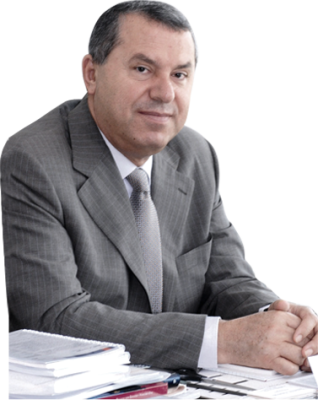Swiss government & business councils advised to issue new UAE warnings to citizens
- Detained in Dubai
- Feb 1, 2021
- 4 min read

Stirling has contacted the UAE ambassador to Switzerland, the Swiss ambassador to UAE, the Swiss-UAE business council, and the Swiss Foreign Office, as well as multiple global investment groups, warning that Ras Al Khaimah cannot be considered a stable destination for business.
The Swiss government is being asked to increase travel warnings against the UAE, and investors are being discouraged from doing business specifically in Ras Al Khaimah by prominent rights group Detained in Dubai.
“The slogan for Ras Al Khaimah should be, ‘Invest in RAK, where no good deed goes unpunished;” says CEO Radha Stirling about the small northernmost emirate in the UAE, “Nothing makes this point better than the case of Swiss national Khater Massaad.”
Stirling, the founder of Detained in Dubai and head of Due Process International, is referring to the ongoing legal persecution of Khater Massaad, the original CEO of Ras Al Khaimah Investment Authority (RAKIA) who put RAK on the map for international investors. “When Massaad began building RAKIA for Sheikh Saud bin Saqr Al Qassimi, there was only one highly successful company in the emirate, and it was his,” She explained, “Through his connections with the World Bank, global finance, and the international investment community; Massaad quickly developed RAKIA into one of the most prosperous hubs for foreign capital in the region. Roughly a decade after being pushed out of his position by Sheikh Saud, he finds himself the victim of a paranoid political vendetta.”
Stirling has contacted the UAE ambassador to Switzerland, the Swiss ambassador to UAE, the Swiss-UAE business council, and the Swiss Foreign Office, as well as multiple global investment groups, warning that Ras Al Khaimah cannot be considered a stable destination for business. “It is irresponsible to encourage Swiss businesspeople to bring their capital to RAK with the emirate’s appalling track record of abuse,” she said.
The risks of investing in RAK, Stirling explained, trace back to the beginning of the current government.

After taking over the emirate in 2010, Sheikh Saud engaged in purge of everyone he suspected of being affiliated with his brother Sheikh Faisal, whom he had snubbed as crown prince in favour of his own son. He was also challenged by another brother, Khalid, who had earlier been slotted to assume the throne after their father’s death. “In this purge,” Stirling said, “Saud unwisely eliminated all the key players who had made RAK a successful investment destination, including Khater Massaad. In order to justify all of this, Saud fabricated civil and criminal charges against those whom he purged. Whoever he was able to arrest, like Karam Al Sadeq, Jihad Quzmar, and Johnson George; he allegedly had them tortured, threatened, and intimidated into making ‘confessions’ and false testimony against Faisal, Massaad, and others. Those fortunate enough to be out of the country, like Massaad and Oussama El Omari, former CEO of Ras Al Khaimah Free Trade Zone Authority (RAKFTZA); Saud had them listed on Interpol and pursued them in other jurisdictions.”
Khater Massaad was arrested in Saudi Arabia in 2016 on an RAK warrant for 5 separate cases, all of which were summarily rejected by the courts due to lack of evidence. “The truth is,” Stirling says, “The UAE failed to even argue the cases in court when the judge demanded substantiation. Clearly, Saud believed that Saudi Arabia would extradite with no questions asked, as a courtesy to another GCC country; but Massaad is a Swiss citizen and not eligible for expedited deportation. When called upon to prove their allegations in court, RAK had nothing to say.”
Sheikh Saud then launched the cases again in Ras Al Khaimah, where the judicial outcome was under his control. As a result, Massaad’s assets have been frozen and his current investment projects in Bangladesh have been halted.

Stirling explained that the Massaad case is not the only example of serious legal wrongdoing by the RAK regime, “This case is particularly stark simply because Khater Massaad is the man who quite literally transformed RAK from a poor backwater into a profitable investment hub. He was never paid for his work with RAKIA, but made Sheikh Saud billions of dollars in revenues, yet he is being relentlessly pursued a decade later without cause. But, his case is by no means the worst coming out of RAK. Karam Al Sadeq and Jihad Quzmar have brought lawsuits against the regime for gross human rights violations, Reda Abulahdid, a French national, had his life and business ruined by corrupt customs officials when he refused to surrender a share of his profits as a bribe; and Oussama El Omari is suing Sheikh Saud in the United States for an ongoing campaign of intimidation and defamation.”
The UAE has faced increasing international scrutiny in recent years following a number of high profile scandals. Radha Stirling represented Princess Latifa, the daughter of Dubai’s Ruler Sheikh Mohammed bin Rashid Al Maktoum who tried to escape the Emirates, only to be recaptured in an armed raid at sea. Sheikh Mohammed’s wife escaped soon after, with messy divorce and child custody battles playing out in English courts. Sheikh Saud himself was charged with sexual assault in the US before fleeing home to RAK to avoid trial.
“Sheikh Saud runs Ras Al Khaimah like a stereotypical banana republic. It is the most despotic emirate in the UAE; there is no rule of law, the courts are not independent, foreigners have no protections, and investment from abroad is regarded as a contribution.
We are raising the alarm to the international investment community to avoid RAK at all costs. The best case scenario is bankruptcy, and the worst case scenario is bankruptcy plus torture and life in prison.”

